Lily Iona MacKenzie's Blog, page 51
April 12, 2016
FREEDOM!
I’ve realized that it isn’t just writers who are tempted to turn themselves into fodder for the Internet. Non-writers also are tempted to give up their lives and be submerged by the Google glitz.
That’s where freedom comes in.
Freedom means many things to different people. For some, it conveys release from constraints. For others, it gives permission to not follow a particular religion or political ideology. Many are trying to free themselves from failed states. Still more want to be self-determining individuals that aren’t under anyone’s sway.

For me these days, freedom has more to do with technology overload and its tyranny. From the time I wake up until I go to sleep at night, different devices surround me. I go to my computer immediately to write my dreams in my journal. Then I check out email, visit the Times’ front page to catch up with whatever important news I missed while sleeping, look at my Facebook book page and scroll through messages, view my Google calendar to see what’s on my list for the day, get sidelined by hyperlinks that demand immediate attention, and so much more.
Throughout the day and evening, I’m frequently on my computer working on marketing tactics for my novels and poetry collection or writing. When I’m in my car commuting or at the gym, I listen on my smart phone to audio books and frequently check my email and phone messages. In the kitchen, while I prepare dinner, I watch my favorite programs (tennis, baseball, the Antiques Roadshow, and the PBS Newshour, programs that I’ve pre-recorded).
The one thing I don’t do yet is walk around with ear buds plugged into my ears, so I have some freedom! But I also have freedom when I write from the wonderful free application of the same name that I’ve downloaded onto my computer. I start it when I begin my writing time, and it keeps me from being distracted by all of the things I’ve mentioned above, allowing me to focus on my work. I’m also considering turning it on when I’m NOT writing so I can wean myself from this hi-tech world and the behavior it encourages.
Before I could finish this blog post, I got sidetracked by the latest offering from Goldstar, and am still browsing through its current offerings. There’s no question that technology offers us much, but with as with anything in this world, there also is a downside. I’m aiming for more freedom. I hope you’ll join me!
Filed under: Links Tagged: email, freedom, hi-tech, smartphone, technology








April 4, 2016
The Importance of Poetry Mentors
Recently someone asked me which poet or poets influenced me the most in writing poetry and why. It would be great if I could just name one of two, but different poets have been important to me at each stage of my development in that medium.
When I was an undergraduate and still finding my way in the poetry universe, I fell for
William Carlos Williams. His straightforward, down-to-earth lyrics spoke to me in ways that other poets’ work hadn’t. He seemed to be speaking from inside experiences that I 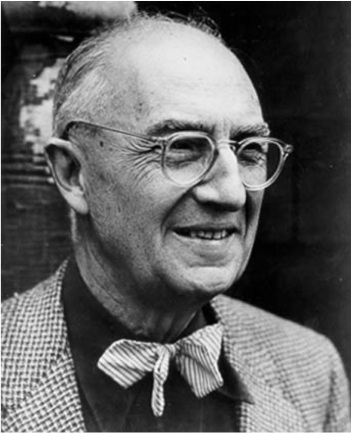 could relate to. At that point in my evolution, I wanted something clear and accessible. Here’s an example: “This is just to say.”
could relate to. At that point in my evolution, I wanted something clear and accessible. Here’s an example: “This is just to say.”
This is just to say
I have eaten
the plums
that were in
the icebox
and which
you were probably
saving
for breakfast
Forgive me
they were delicious
so sweet
and so cold
It amazed me that a few simple unadorned words could carry such a punch. The plums remind me of the apple that Eve partakes of in the Garden of Eden. Eating the fruit of the tree of knowledge awakens her to an awareness of good and evil. As with Eve, the plums are something that the speaker can’t resist.
Later, I discovered Wallace Stevens, who joined my list of revered poets. His lyrics were the opposite of Williams’ work. They weren’t just moments captured on the page but philosophical statements that also had layers of meaning. I’m thinking here of “The Emperor of Ice Cream”:
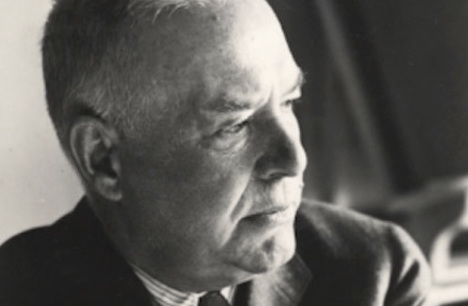 Call the roller of big cigars,
Call the roller of big cigars,
The muscular one, and bid him whip
In kitchen cups concupiscent curds.
Let the wenches dawdle in such dress
As they are used to wear, and let the boys
Bring flowers in last month’s newspapers.
Let be be finale of seem.
The only emperor is the emperor of ice-cream.
Take from the dresser of deal.
Lacking the three glass knobs, that sheet
On which she embroidered fantails once
And spread it so as to cover her face.
If her horny feet protrude, they come
To show how cold she is, and dumb.
Let the lamp affix its beam.
The only emperor is the emperor of ice-cream.
I don’t plan to do an explication de texte of this poem, but I want to point out how delicious the language is that Stevens uses, how musical the sounds: “whip in kitchen cups concupiscent curds,” “wenches dawdle in such dress,” “the dresser of deal,” and “three glass knobs.” The word choice in Stevens’ poem is totally different from Williams’ selection, creating particular effects.
I went through a period of confessing with the more confessional poets (Anne Sexton, Sylvia Plath, Sharon Olds to name just three). But when I entered a Masters in Creative Writing program at SF State, the poet/teacher Kathleen Fraser introduced me to many innovative poets that I hadn’t heard of till then: Fraser herself, of course; Anna-Marie Albiach; Rae Armantrout, Barbara Guest; Carla Harryman; Lyn Hejinian; Susan Howe; Leslie Scalapino; and Rosmarie Waldrop.
This exposure to poets whose work defied the traditional lyric and narrative poem cracked open another poetic universe for me. I have done some experimental work myself, but the most important thing I learned from this exposure was to play more with words and be open to letting them connect with one another in ways that I would not have allowed if I hadn’t taken the detour into invention. The result has been always illuminating, reminding me of how a foreign language can take us into new ways of perceiving the world. To just view the moon through our English idiom is to limit our understanding of it. But to see it through Latin or Greek gives a totally new perspective.
I’ll end with a more experimental example from my own work that was just accepted for publication by Bone Bouquet:
Big Lucks
She told me to
surrender but
I didn’t know
what the word meant
I found a bird
with a knot
in its chest
that I tried to
undo but a kite
ran away
with me I
thought a monster
would save
me One jogged
past named Mary
She had mustard
written across
her chest and the
moon dropped a boy
into a bag
It seemed better
than giving birth
in a zoo All
that junk lying
around in a
subway Some janitor
got ambitious
and threw the cat
into the box
I now am holding
Filed under: Links Tagged: confessional poetry; experimental poetry; innovative poetry; lyric poetry; narrative poetry;, Kathleen Fraser;, nna-Marie Albiach; Rae Armantrout, Barbara Guest; Carla Harryman; Lyn Hejinian; Susan Howe; Leslie Scalapino; Rosmarie Waldrop., Wallace Stevens the emperor of ice cream; william carlos williams This is Just to Say;








March 17, 2016
Are You Ready for the Goon Squad?
The title of Jennifer Egan’s latest book, A Visit from the Goon Squad, has such a negative connotation that anyone picking it up for the first time will expect there is some dark force at work, either human or otherwise. In the case of this work, both things are true. Humans don’t often treat each other in humane ways, and there is a force outside of our control that does a lot of damage: time.
As Bosco, one of the peripheral characters says, “Time’s a goon, right? Isn’t that the expression?” In another section near the end, a different character, Bennie, a punk rocker and record executive (who is one of the two more central figures in the book), says to Scotty, an aging performer who is backing out at the last minute from doing a major concert that Bennie has arranged, “You can, Scotty—you have to….Time’s a goon, right? You gonna let that goon push you around?”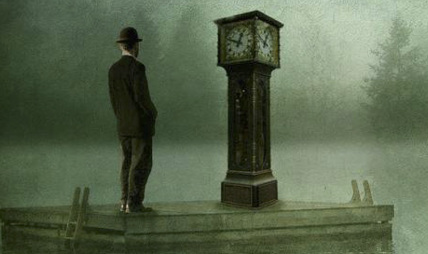
Unfortunately, the goon does push around all of these characters. We all know it’s the nature of being human. And Egan’s novel in linked stories, a collage of these disparate characters lives, captures the way they are roughed up over and over. But this encounter with time also brings wisdom and transformation into some of these characters’ lives. That outcome makes these experiences worthwhile. After all, it’s our individual encounters with the narratives of our own stories that provide the foundation for novelists’ fictions.
While much of the book’s action keeps the reader focused intensely in the present, most chapters at some point flash forward, giving a view of that person’s life in future years. Each section therefore can stand alone, unlike in the traditional novel where a chapter is only a short stop on the journey of these characters’ lives. I didn’t need to know more about light-fingered Sasha, whom we meet in the first episode. Along with Bennie, she anchors this work. But after reading Chapter 1, my experience with her felt complete. Yet when Egan returns to her in later sections and shines a light on Sasha from various angles, it fleshes her out and gives the ending added poignancy because it telescopes the time that has passed as well as the impact we have on one another.
Filed under: Links








March 8, 2016
Is what we call love really love?
Words are so shifty. Take love, for instance, one of those vastly overused words. It gets flung around without much thought. Some end their email messages to strangers with the word. Others can’t end a phone call without saying love you when that isn’t necessarily what they are feeling at the moment or when they mean see you later. The word often becomes disconnected from its true meaning, though even that designation is in question. I don’t necessarily feel deeply affectionate towards a friend in an email, especially if the contents have nothing to do with personal feelings, so I wouldn’t sign it “love.” Nor would I sign it affectionately unless it fit the communication.
I think often what we mean when we use “love” is the opposite. Many people seem allergic to the word hate and refuse to let themselves have such negative emotions. But it’s perfectly normal to hate someone at times that we might otherwise love. Or maybe we don’t love that person at all and never will. (I’ll never be capable of loving Donald Trump!) It’s still okay to hate him/her. Yes, it could be that the person we hate has some dark quality that we don’t want to acknowledge in ourselves and we’re projecting it onto him/her. But we’ll never discover what it is if we don’t first allow ourselves to feel it.
I’m reminded of a therapist I worked with once who was very manipulative and new agey. Rather than let me feel and express anger about certain individuals, she believed I needed to let go of my anger and feel more compassion instead. I think compassion can be important, but not as a replacement for the anger I was experiencing. I needed to acknowledge and accept that response before being ready to move on to compassion. Yet I also think there’s something patronizing about claiming to feel compassion towards another person. It’s as if I’m gracing him/her with my human charity.
But what do we mean when we say we love someone? There is familial love that seems reserved for family members. We assume that because we were born into a particular family that we automatically should love all its members. But doesn’t someone need to exhibit lovable qualities to earn our love? Do we love family members who aren’t lovable, who push us away in multiple ways, who are hostile to us? Maybe love is the correct word here if it means that we continue to support or interact with a family member in spite of his/her failings. Yet is the glue that binds us together in families really love or something else. Necessity? Clan loyalties? Other motivations?
What about with friends? I’ve found that in my friendships, love was something that developed between the other and myself over time. It wasn’t an instant emotion, except perhaps in early romantic love when the other captured something important about myself that I had projected onto him.
Eros, the god of love, and his arrows, can create terrible situations for us. He can cause us to fall into traps that don’t have anything to do with love. It can be more connected to our own narcissistic needs. My husband, a psychoanalyst, has a patient who claims he can’t leave this woman he’s been living with for ten years because he loves her, but they don’t have intercourse. He is involved in a sexual relationship with another woman. Is it really love he feels for his partner? What are the ties that bind us together?
I’m still exploring them and will offer some answers in a future blog.
Filed under: Links Tagged: cupid, god of love, love








March 1, 2016
Do Writers Really Need a GPS?
I have a love/hate relationship with my GPS. On the one hand, I appreciate being able to input an address and magically have this robotic voice guide me to my destination, assuming it knows where to send me. But I also miss the hands-on experience of studying a map and finding my own route, one that makes sense to me and is visually verifiable. When I’m being directed by my GPS, I’m totally in the hands of the GPS gods, and I lose the fun of making my own plan.
You may be asking, but what does this have to do with writing? Isn’t this a blog for readers and writers?
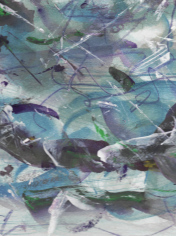 Yes. And that’s why I chose this topic.
Yes. And that’s why I chose this topic.
It occurred to me recently that when writers follows an outline, when they know in advance where their story is going, they are using a kind of writer’s GPS. It may get them to a destination. But they’ll miss out on a lot. Instead of getting lost at times and stumbling into scenarios they had’t anticipated or letting the characters and situations guide them on this narrative journey, they rely on a plan that can eliminate the kind of surprises and interaction at the heart and soul of stories.
Okay, so I’m making a parallel between using a GPS and writing, and I’ve already extolled the virtues of maps that I can hold and peruse. You may be wondering what the difference is between writing that follows a plan (GPS) and writing that uses a map instead. Isn’t it the same thing?
Yes and no. Yes in the sense that somewhere in the writer’s unconscious a plan does exist, but she hasn’t teased it out yet. The reason it isn’t the same thing is because the GPS takes control. It assumes it knows where to go just as a writer does who actively plots a story beforehand. With a map, there are many more possibilities. We know that there’s a path, but we have to use our senses and trust in the unconscious to help us find it. That requires depending more on intuition than on conscious plotting.
What kind of device do you depend on?
Filed under: Links Tagged: gps, map, narrative, stories, writing








February 23, 2016
What stories do statistics tell?
I’ve been reviewing my blog statistics for 2015, curious to learn what posts drew the greatest response. Over the year, I had 1970 total visitors and 3830 views. And the post that drew that greatest response is one I wrote some time ago about not booking first class on Spain’s trains (193 views). It hasn’t lost its appeal.
 As I point out in the post, “From the RailEurope website (and what little I could glean from the Renfe site), I understood that first-class (premier) tickets included a meal (from the RailEurope website: “Enjoy an a la carte menu served right at your seat.”) Nothing could have been farther from the truth! We had been told by a Renfe agents at the information center in Seville that a hot meal would be served during our 4 1/2 hour ride to Barcelona, so I didn’t purchase something to eat on the trip. But all we were given were tiny rolls, equally tiny pieces of cheese, and a smidgeon of ham.
As I point out in the post, “From the RailEurope website (and what little I could glean from the Renfe site), I understood that first-class (premier) tickets included a meal (from the RailEurope website: “Enjoy an a la carte menu served right at your seat.”) Nothing could have been farther from the truth! We had been told by a Renfe agents at the information center in Seville that a hot meal would be served during our 4 1/2 hour ride to Barcelona, so I didn’t purchase something to eat on the trip. But all we were given were tiny rolls, equally tiny pieces of cheese, and a smidgeon of ham.
To make matters worse, the train ended up stalling 45 minutes outside of Barcelona. Only one announcement was made, in Spanish. Nothing in English. And we were kept in the dark, figuratively and literally, for two hours before another train arrived to rescue us, not knowing what was going to happen.
Surely we could have been informed more frequently about the rescue operation. It also would have been good public relations if someone had thanked us over the public address system for our patience and acknowledged the inconvenience we had all experienced (there were a lot of elderly people on this train, and they had no help in lugging their bags over to the train that rescued them).
I would like to say that first-class travel in other countries was better. It wasn’t, except for a train we took from St. Petersburg to Moscow, another 4 1/2 hour ride. In that instance, we truly did have a first class experience The stewards served us a three course lunch that was tasty and filling. I had a chicken dish with vegies and mashed potatoes. My husband had fish. As a starter, we enjoyed a cheese selection. Russia’s first-class high speed train was definitely worth the extra cost.
But back to my most viewed blog posts in 2015, my page for Fling!, my novel that was published in 2015, had almost as many visits as the one on first-class trains. I’m delighted that so many people were interested in learning more about the book and all of the reviews I’ve posted there.
The next highest, other than visits to my bio, was a piece I wrote, “The Magic in Magical Realism.” Since Fling! definitely fits that category, it makes sense that both should have a high number of views. “Go for the Gold and Hire a Publicist,’ has high numbers, as does “Writing’s Dialogue with Myself And My Life” and Bone Songs, another of my novels that will be published in November 2016.
Surprisingly, the viewing numbers were healthy for several other posts/pages, and most of my entries had at least one visitor. I’m not sure what to conclude from these stats, but I’m happy that my blogging explorations have somewhat of a following.
Thanks to my readers!
Filed under: Links Tagged: blog posts statistics, first class train travel in europe, fling








February 16, 2016
To Read Or Not To Read
I’ve been scheduling lots of readings at retirement communities in the Bay Area since Fling!’s two main characters are 57 and 90. For the most part, these experiences are positive and give me a chance to introduce a diverse group of people to my novel. However, I don’t think that one’s characters need to be older adults necessarily in order to attract readers in these venues.
What I’ve learned, though, is to be sure that the facility has lots of independent living units. Otherwise, if it’s an assisted living place primarily, those attending will be limited in their cognitive functions and the reading will be less successful.
Since those who have chosen a retirement community are probably less mobile than they once were, many are eager for stimulation, intellectual or otherwise. Activities directors, therefore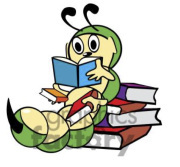 , are usually eager to book authors whose books might resonate with their residents.
, are usually eager to book authors whose books might resonate with their residents.
At the beginning of an event, I pass out postcards my publisher has created that give info about me and the book, as well as my blog address. I usually ask those attending why they read because their answers often, ironically, state the reasons why writers write. Then I ask what kinds of books attract them. Depending on the facility, the answers usually are mysteries and romances, though some also enjoy literary works.
After I’ve given an overview of my novel and its origins, I read a short passage, usually not for more than seven to ten minutes. I follow that with an opportunity for them to ask me questions. To stimulate the dialogue, I print out at least a dozen different questions that writers are asked about process, etc., and distribute them to those who are willing to read them aloud. That allows me to go into more depth and also involves those attending to interact with me.
By the end of the event, some are interested in buying a book, but even if they aren’t, it’s been an opportunity for me to spread the word about Fling! and to bring some stimulation into their lives. Both seem important outcomes.
Filed under: Links Tagged: readings, retirement communities








February 10, 2016
Prayer or a Power Play?
I’ve been puzzling over the use and abuse of prayer. On its most benevolent level, prayer seems to be a request someone makes on behalf of herself or others to the divine. The person offering the prayer hopes that this intercession will shed some light on a particular situation. In the case of illness, one hopes that praying for that person might bring a positive outcome in the form of healing. There’s the belief that conveying the prayer might have some power to change a bad outcome into a better one. On the surface, this supplication seems innocent and well-intentioned.
While I appreciate the intent behind a friend or family member praying for me, I do get uncomfortable when the intention seems to have a power element behind it. Let me explain.
Over the years, I’ve witnessed a relative, a conservative Christian, praying for me and others. This person believes she’s doing the Lord’s good work by taking the time to mediate on certain people’s behalf. But unfortunately, her prayers often appear to have a questionable intent. 
Instead of praying for a generic outcome, she has a particular end in mind. In one case, she told me that she had prayed for me to experience calm and acceptance during a crisis. When I did actually demonstrate a more peaceful state, she assumed it was because of her intervention. But to me, she was demonstrating a power motif that I find upsetting. I feel she’s using this appeal to a higher power to make her own life feel more significant, and, in a way, she doesn’t trust in the benevolence of a deity to give me consolation. She is taking on the role of the deity herself and assuming she can make changes in people’s lives.
Even when a person makes a generic wish for someone in need to be helped, it could still have a power element in it. There’s something patronizing and officious about claiming we have the ability to change the result of an illness or negative condition. On the one hand, for me to say I’ll pray for you could just be an innocent utterance that I actually won’t formally follow through on, but saying it relieves me from feeling helpless and makes me seem compassionate and caring.
I’m wondering what others think about the use of prayer. Convince me that I’m wrong!
Filed under: Links Tagged: deity, higher power, intercession, prayer








February 1, 2016
The Poetry in Dreams (Part 2)
In my last post, “The Poetry in Dreams,” I promised to talk next time about how one “gets” a poem. Here is my attempt to deal with that topic.
To understand either a dream or a poem, we need to develop a new faculty, a “third eye.” William Stafford has another way of saying this:
“Poetry is the kind of thing you have to see from the corner of your eye…. It’s like a very faint star. If you look straight at it you can’t see it, but if you look a little to one side it is there…. If you analyze it away, it’s gone. It would be like boiling a watch to find out what makes it tick. If you let your thought play, turn things this way and that, be ready for liveliness, alternatives, new views, the possibility of another world—you are in the area of poetry.” (William Stafford. Writing the Australian Crawl. Ann Arbor: The University of Michigan Press, 1978, p. 3) 
Teaching poetry reminds me that while we dream and write poetry in solitude, to fully engage a poem is a communal activity. (Similarly, to apprehend a dream, it helps to discuss it with someone—a friend, a therapist.) While I might sit down alone with a poem and enter into the poet’s world, with a group something magical happens. Connections I hadn’t thought of spring to life; observations that hadn’t occurred to me add a whole new dimension to the poem. (I’m reminded that something similar happens at a good poetry reading: Perhaps hearing the poem with other interested individuals triggers neurons in our brains that otherwise might not have been touched, not unlike what can happen in certain houses of worship.)
This occurred when I looked at one of Canadian poet Alden Nowlan’s poems with my class—”The Bull Moose.” In it he describes a moose that wanders out of a forest and ends up in a cow pasture. The moose’s presence attracts the farmer’s neighbors who treat it like a carnival attraction, something domesticated, though the cows that share the pasture have more sense: they back away and huddle at another end of the enclosure. In response, the game wardens have come with their rifles, and the
bull moose gathered his strength
like a scaffolded king, straightened and lifted his horns
so that even the wardens backed away as they raised
their rifles.
When he roared, people ran to their cars. All the young men leaned on their automobile horns as he toppled
(Jack David and Robert Lecker, eds. Canadian Poetry, Volume Two. Toronto: General Publishing Co. Limited, 1982. p. 129.)
My students and I talked about more obvious ways of understanding this poem, the bull moose representing wild, instinctual life that becomes trapped in civilization and patronized: We think we can control and tame it. But the moment the animal shows its true nature and majesty, we react with fear and kill it.
I then suggested that we could also view the moose as symbolizing what we do to ourselves, how we try to contain and control our own noblest aspects. However, when we begin to show how truly powerful we are, we kill those parts. The game warden/censor in our psyche rushes in and shoots this powerful potential before it gets out of control. The moose also can represent poems themselves that we don’t allow into our lives because they can be as splendid and wild as this bull moose, as tame and as mysterious, as difficult to control and as frightening. But why frightening? Why on earth might a poem be frightening?
One student observed, “They’re too deep.” This response captures, I think, much of what we fear in poetry: It carries us past safe waters; there’s no lifeguard on duty; we can get in over our heads quickly, taken out to sea. We can discover new territories in ourselves—uncharted, savage, uninhabitable.
Filed under: Links Tagged: alden nowlan, dreams, poems, poetry, teaching poetry, the bull moose, the poetry in dreams, william stafford, writing the australian crawl








January 25, 2016
The Poetry in Dreams
I’ve been thinking a good deal about dreams and the role they play in our lives. I’ve also been thinking about how they relate to poetry. In a recent expository writing class I was teaching, many students admitted having trouble reading poetry. I discussed this difficulty with them. “Why,” I asked, “in a class of twenty literate, intelligent young men and women do only two or three read or write poetry—even occasionally?”
They thought about the question, and then a few raised their hands tentatively; they tried to articulate why poetry was hard for them: “It doesn’t have anything to do with my life,” said a female business major from Hong Kong. “I can’t get it,” said a male psychology major from Philadelphia. “I feel silly saying I read poetry—people think you’re weird if you do,” admitted another young woman from Los Angeles. “They’re too depressing—they always seem to be about sad things,” claimed someone else.
I urged them to give poetry a chance, reminding them that poems are compressed use of language, so they work like instant food: you need to add water before eating it. With poetry, instead of water, you need to bring your full attention, intellect, imagination, and heart. if you do, the poem will open and reveal itself to you.
 I also made a parallel between poetry and dreams, since I believe that both arise from a similar place in the psyche, the more archaic part of ourselves that isn’t available to us except through images and symbols. The psyche seems to be preverbal, though this statement makes it sound as if it can’t make use of language; a better way of putting it may be that the psyche—what Carl Jung called the objective psyche—has existed since the beginning of time, and our individual psyches hook into it. Dreams, poetry, and other art forms communicate from this place, especially if they’re transformative, capable of lifting us out of our ordinary perceptions.
I also made a parallel between poetry and dreams, since I believe that both arise from a similar place in the psyche, the more archaic part of ourselves that isn’t available to us except through images and symbols. The psyche seems to be preverbal, though this statement makes it sound as if it can’t make use of language; a better way of putting it may be that the psyche—what Carl Jung called the objective psyche—has existed since the beginning of time, and our individual psyches hook into it. Dreams, poetry, and other art forms communicate from this place, especially if they’re transformative, capable of lifting us out of our ordinary perceptions.
For people who have no relationship with their dreams, they often seem arcane, nonsensical, strange. But once you’ve become acquainted with how dreams work, you discover that they speak a special language, not unlike the language of poetry: You need to read between the lines, hear the “message” that the dream contains.
But message sounds too much as if both poems and dreams are didactic, intentional creations. A poet doesn’t start out with a message. Rather she has a feeling or image or idea she wants to explore, the poem being a place where she can make new connections between the world, memories, and language. Similarly, dreams take the flotsam of daily life, mix it with memory, desire, and potential new life, and create a coherent symbolic whole.
Yet to “get” a poem or dream, we need to enter it, walk around inside it, rather than examine it from the strong, sometimes harsh light of rational intellect. Of course we need to take our intellect with us, some aspect of it at least; but we descend into the dream or poem in order to “get it.”
In my next post, I’ll talk about the “getting part”!
Filed under: Links Tagged: dreams, jung, poems, poetry, poetry's difficulty, psyche











